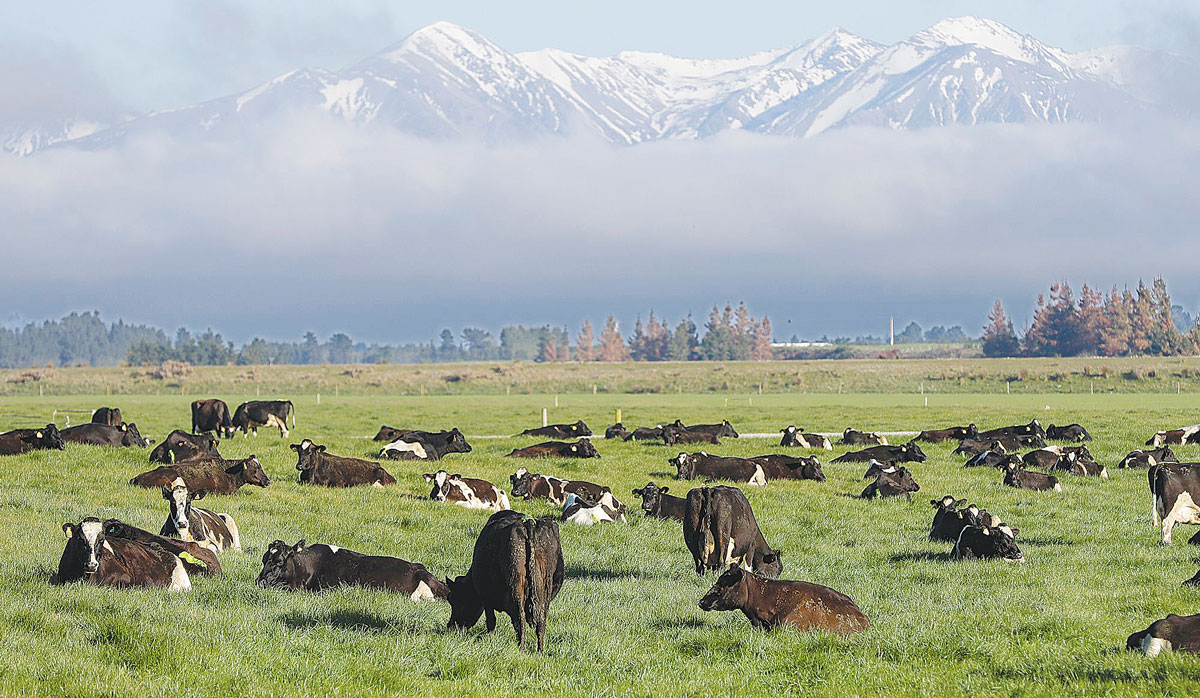A project to develop a sustained release methane inhibitor technology for grass-fed animals has received a funding boost from the Government.
Ruminant BioTech’s CALM (Cut Agricultural Livestock Methane) programme has secured nearly $8 million from the state. Ruminant BioTech investors will match the Crown’s cash injection.
The company aims to develop a commercially viable bolus by 2025 that delivers at least a 70% reduction in ruminant animals’ methane emissions over six months.
Ruminant BioTech chief executive George Reeves says the bolus has the potential to provide every dairy, sheep, and beef farmer in New Zealand with an effective, easy, “set and forget” methane reduction solution that is both highly effective and practical for grass-fed animal farming operations.
“Our slow-release bolus delivers a methane inhibitor at the site of methane production, in the rumen. Preliminary trials achieved 90% methane emissions reduction over 80 days. While these initial results were extremely positive, our goal is to develop a bolus that achieves 70% methane mitigation over six months,” explains Reeves.
He says the methane inhibitor bolus is unique and has the potential to deliver significant climate change impacts.
“New Zealand has a unique greenhouse gas emissions profile. Almost 50% of our total GHG comes from agriculture and three quarters of this comes from methane produced by ruminant animals.
“While most countries around the world can meet their methane reduction targets by increasing clean energy sources, New Zealand’s situation is more complex. We are heavily reliant on agriculture for export revenues and employment, which must continue.
“Yet we need to materially reduce agricultural methane emissions to help New Zealand achieve its 2030 reduction target of 10% below 2017 levels.
“Other methane mitigation products in development are primarily feed additives. However, because New Zealand farms are grass-fed systems, feed additives are not a very practical solution.
“The aim is for our bolus solution to be suited to every ruminant animal, on every New Zealand farm. There is no other solution currently available anywhere in the world like it. It’s a real game-changer,” says Reeves.
To date, the company’s focus has been on delivering a large cattle bolus for cattle weighing over 300kg.
The Government funding will allow it to accelerate development of current bolus for large cattle, while also developing bolus solutions for smaller cattle and sheep.
 |
|---|
|
The bulk of NZ's greenhouse gas comes from methane produced by ruminant animals.
|
Reeves confirms the company’s research and development programme will focus on fine-tuning the product technology over the next three years, including robust testing to ensure the solution is safe for animals and does not impact on the quality or safety of the food they produce.
Reeves confirms that if the Ruminant BioTech bolus is broadly adopted it will have a significant effect in reducing New Zealand’s net greenhouse gas emissions and help enable the country to achieve its 2030 emissions reduction targets.
Ruminant BioTech’s research team will work closely with farmers, supply chain partners and industry bodies as it furthers product development.
Bolus - How Does It Work?
Boluses are a com mon mechanism to deliver drug s and trace ele ments/minerals to ruminants and have been used safely for around 50 years in the farming industry.
A bolus is a like a large capsule which sits in a ruminant animal’s stomach and co ntinuously release s, at a slow pace, an optimal dose of a drug or substance. In our case, that substance is tribromomethane.
The do se of tribromomethane the animals receive over time should be low enough to be safe for animal, food and the environment, while high enoug h to achieve significant levels of methane reduction.
Ruminant BioTech says this needs to be verif ied by its comprehensive animal research plan, but based on initial data they have, there is no cause for concern.
https://www.ruminant-biotech.com/











